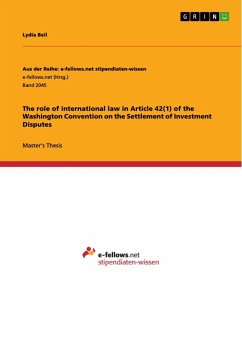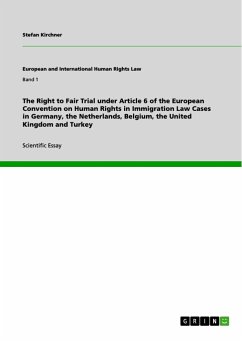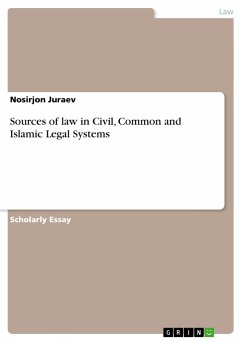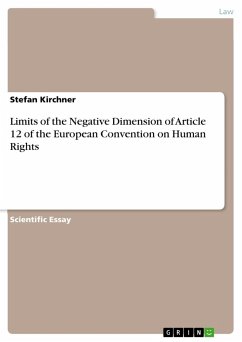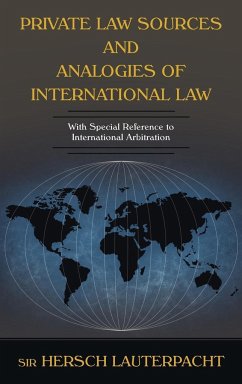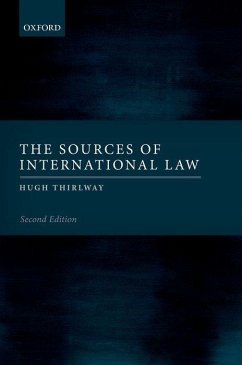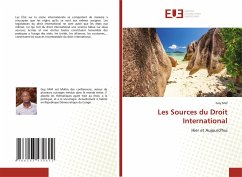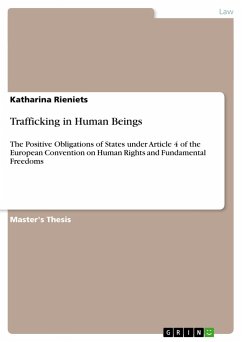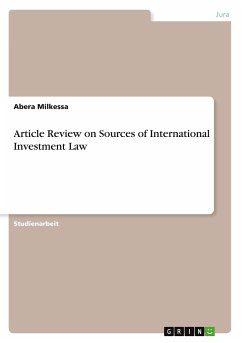
Article Review on Sources of International Investment Law

PAYBACK Punkte
0 °P sammeln!
Studienarbeit aus dem Fachbereich Jura - Andere Rechtssysteme, Rechtsvergleichung, , Sprache: Deutsch, Abstract: The sources of international investment law are discussed, as well as the distinguishing characteristics of this area of international law in comparison to general international law. The predominance of bilateral investment treaties in investment relations raises various problems about the linkages between investment and non-investment treaties. In such situations, no investment tribunal has exonerated a party from its investment duties, nor has it considerably lowered the amount of...
Studienarbeit aus dem Fachbereich Jura - Andere Rechtssysteme, Rechtsvergleichung, , Sprache: Deutsch, Abstract: The sources of international investment law are discussed, as well as the distinguishing characteristics of this area of international law in comparison to general international law. The predominance of bilateral investment treaties in investment relations raises various problems about the linkages between investment and non-investment treaties. In such situations, no investment tribunal has exonerated a party from its investment duties, nor has it considerably lowered the amount of compensation to be paid to the damaged party. In the formative phase of international investment law, particularly in the oil concession arbitrations and in the pre-BIT era, general principles of law played an important role (such as in the Iran-US Claims Tribunal). According to recent empirical investigations, they are mainly ignored by today's arbitral tribunals. The intrinsic ambiguity of this source of law may explain the relative insignificance of general rules in contemporary investment jurisprudence. Article 53 of the Vienna Convention, which deals with jus cogens, and Article 103 of the United Nations Charter, which deals with the primacy of the Charter's duties over investment treaties, Although writers' writings are considered a "secondary" source of international law, investment courts frequently consult them. Unlike the International Court of Justice, the World Trade Organization Appellate Body, and the European Court of Human Rights, which seldom resort to writers' opinions, investment arbitrators usually refer to scholarly literature In this chapter, we examine the distinctive features of the sources of international investment law and how they relate to relationships between host states and foreign investors. Article 38 of the International Court of Justice's Statute of Justice defines the list of sources of general international law. As discussed in this chapter, not all rules of public international law are relevant to relationships with host states or foreign investor.




